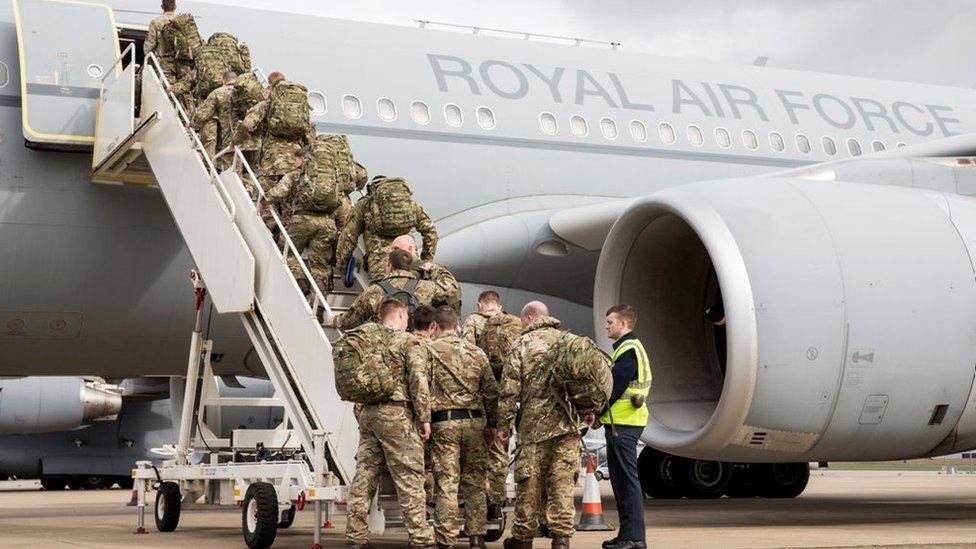The Welsh soldiers keeping the Estonian border safe
- Published
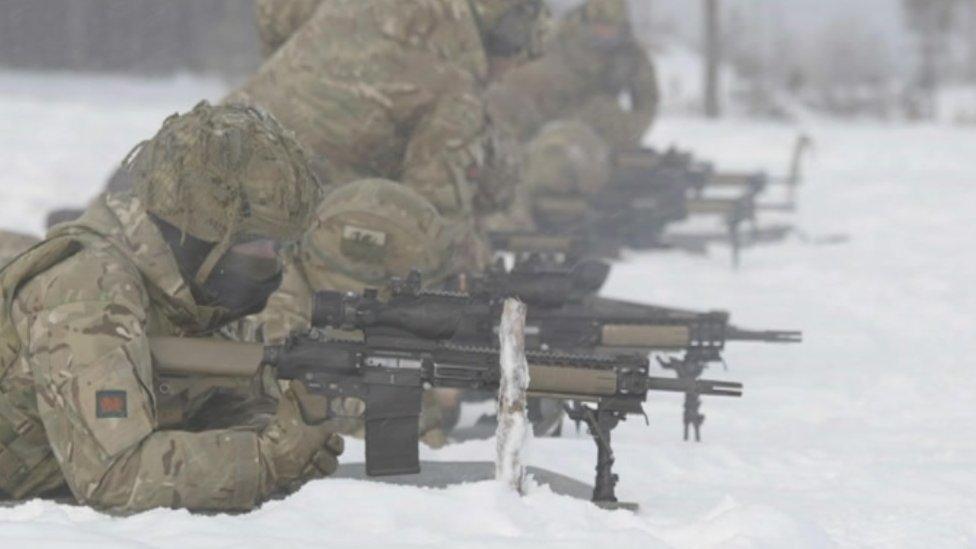
It is -19C in rural Estonia. A thick blanket of snow covers the empty fields in front of us and the woodland floor behind.
It continues to snow as we watch fusiliers from 1st Battalion The Royal Welsh improve their marksmanship at static targets.
This makeshift firing range, on top of a hill in the Estonian wilderness, is just one part of normal training for these men while on their eight-month deployment.
This is 20-year-old Aaron Wilson's first operational deployment with the British Army.
"It's been easier than I would have expected. We've done cold weather training and a course on learning how to live off the environment," he said.
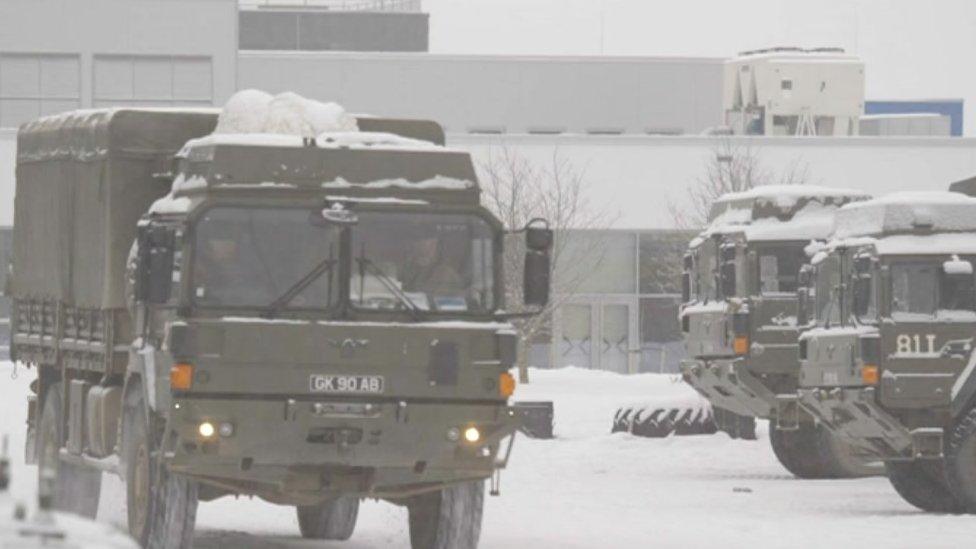
Stationed in Tapa, this is the closest Nato forces have been based to the Russian border, situated just 100 miles (160km) away.
Although daily life here revolves around training, adapting to the harsh environment and learning new skills, this is no ordinary deployment.
Following Russia's invasion of Ukraine in 2014, Nato members agreed to deploy four multinational battle groups to Poland and the Baltic countries near Russia.
It has been named Enhanced Forward Presence (EFP).
Lt Col Owain Luke, who is the Commanding Officer in Tapa, tells me the clue is in the EFP name - allied forces' mere presence in the Baltics is doing the job.
"We achieve the deterrent principally by being here, because Russia knows that to invade Estonia would be to come up against Nato troops as well as Estonian forces," he said.
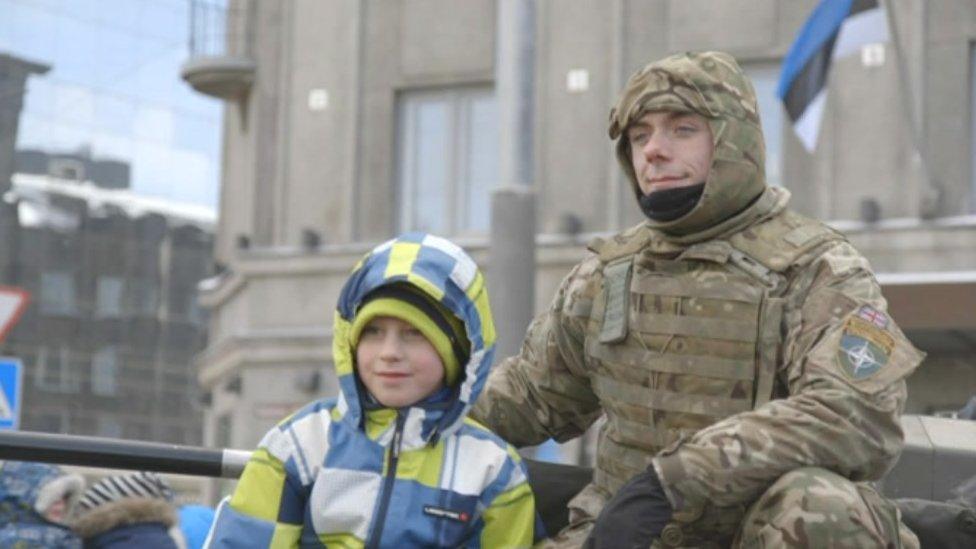
Soldiers are keen to mix with residents
As Estonia celebrates the centenary of its independence this year, the importance of British and Nato troops is clear.
Estonia had enjoyed a brief period of independence from Russia in the wake of World War One, before being absorbed into the Soviet Union.
It regained its independence after the fall of communism and in 2004, Estonia joined the EU and Nato.
Thousands of families came out to celebrate the centenary on the streets of the capital Tallinn - the blue, black and white flag waving proudly in the crowds.
Speaking to many who braved the cold, all welcomed Nato forces in their country.
One man in his 20s, who until recently was a soldier himself, said "it's really nice to see everybody supporting us".
A young woman told me "if it's a bigger force, it's a bigger effort and maybe somehow it's a feeling that you're more secure".
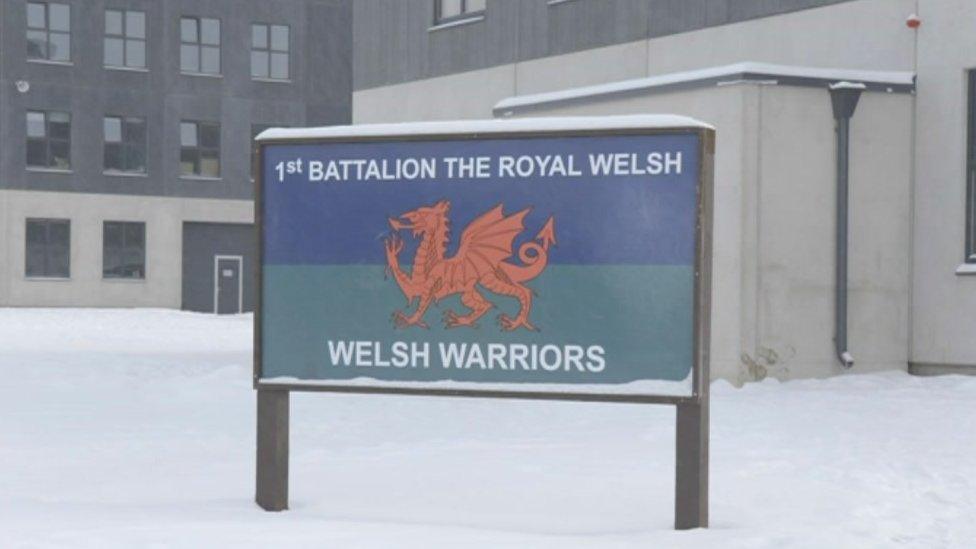
The 1st Battalion The Royal Welsh are currently based around 100 miles from the Russian border
Other than offering a military presence, a significant effort seems to be being made by the British Army in developing relationships with residents.
They are keen to be part of the community, not just a military force shut away on a base in the rural heartlands.
The Royal Welsh have also been training the Estonian national rugby team - developing and improving their understanding of the game.
Estonian players are keen to gain international status, and believe with the rugby expertise of individuals in the Army, that can happen.
The sport was brought to the country by expats, and many of those training at the indoor training pitch in Tallinn have played the game abroad in countries with a more developed rugby heritage.
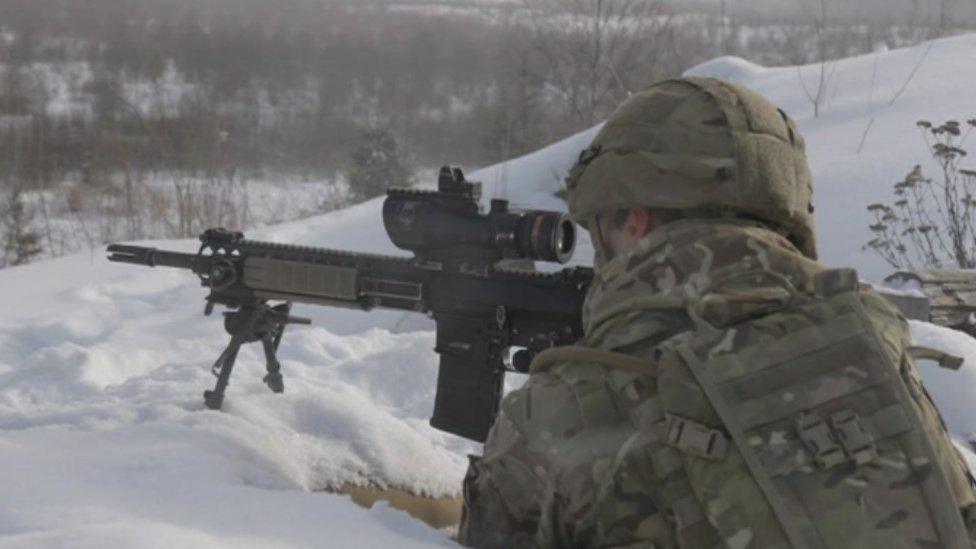
The British are the Nato lead in Estonia and alongside the 500 or so Royal Welsh, are Danish and French forces.
And if political tensions in the region increase, their presence in Estonia will remain a welcome comfort to the locals of this former Soviet Union country.
- Published2 October 2017
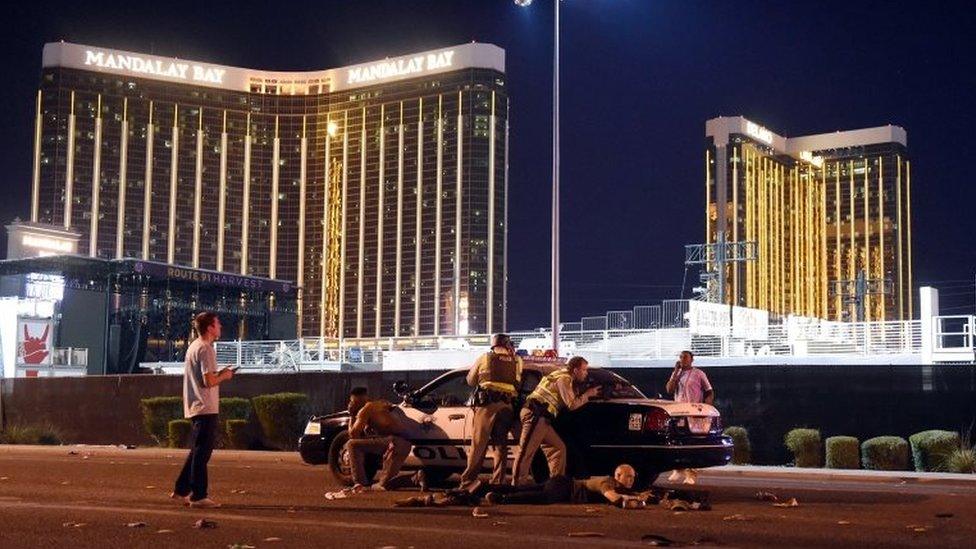
- Published2 February 2018
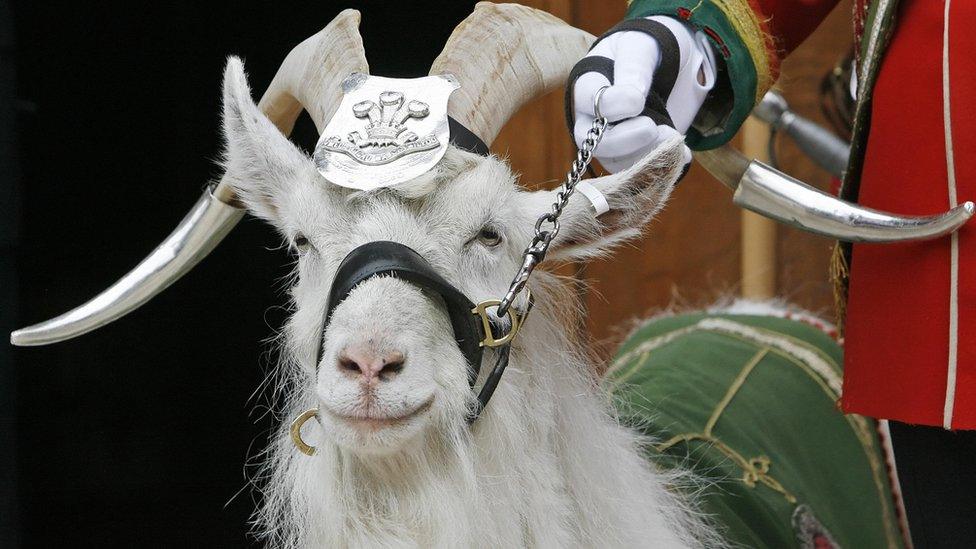
- Published10 July 2017
- Published18 March 2017
